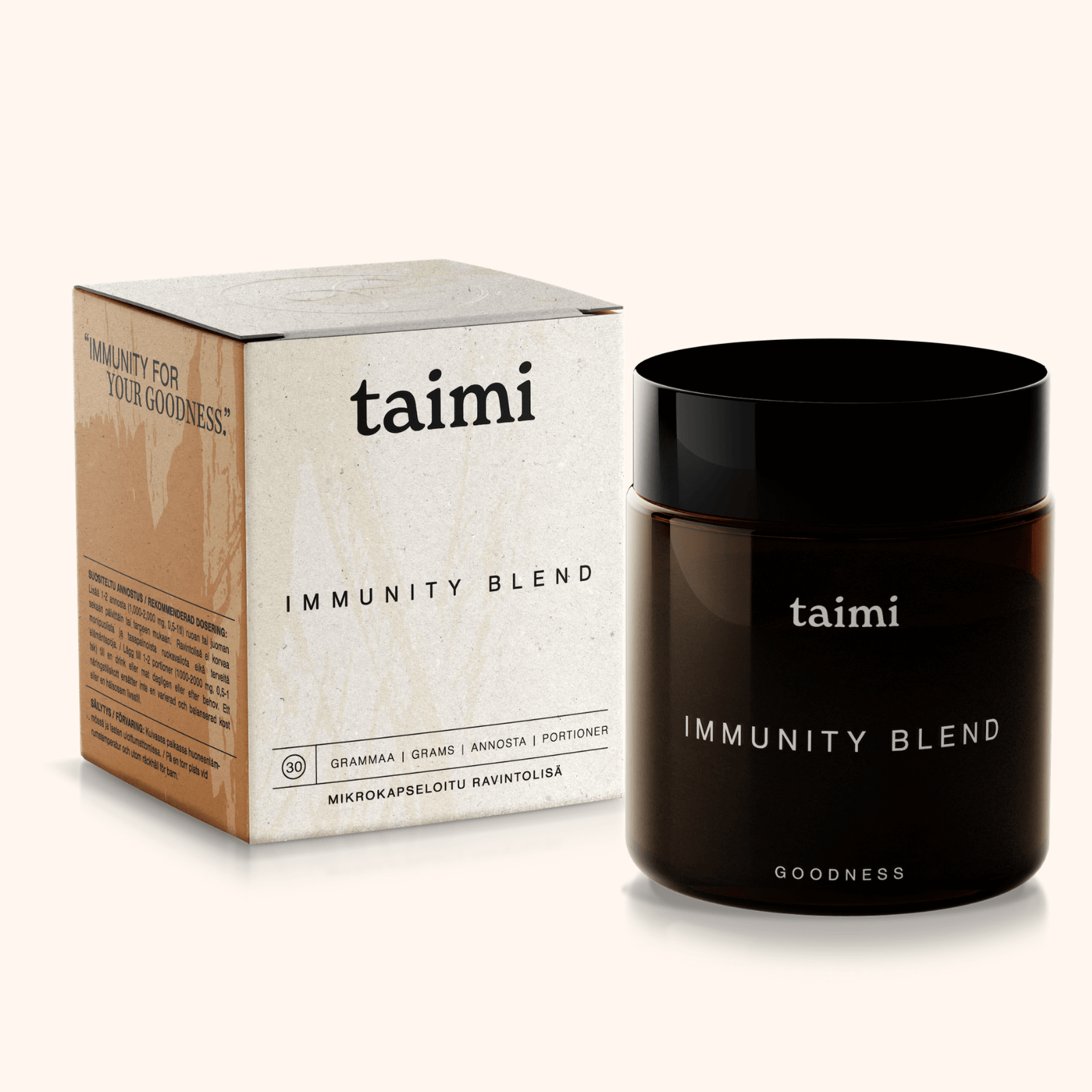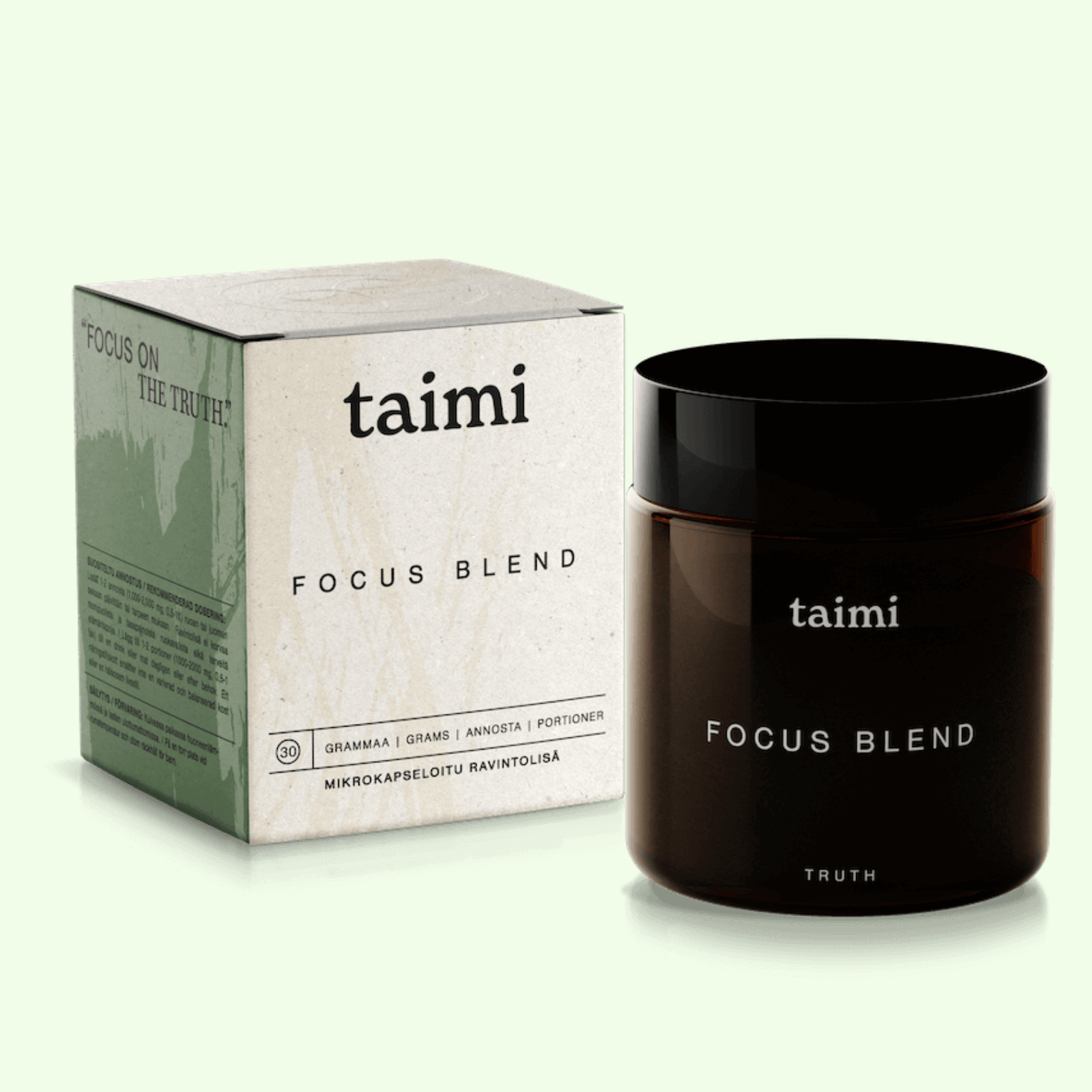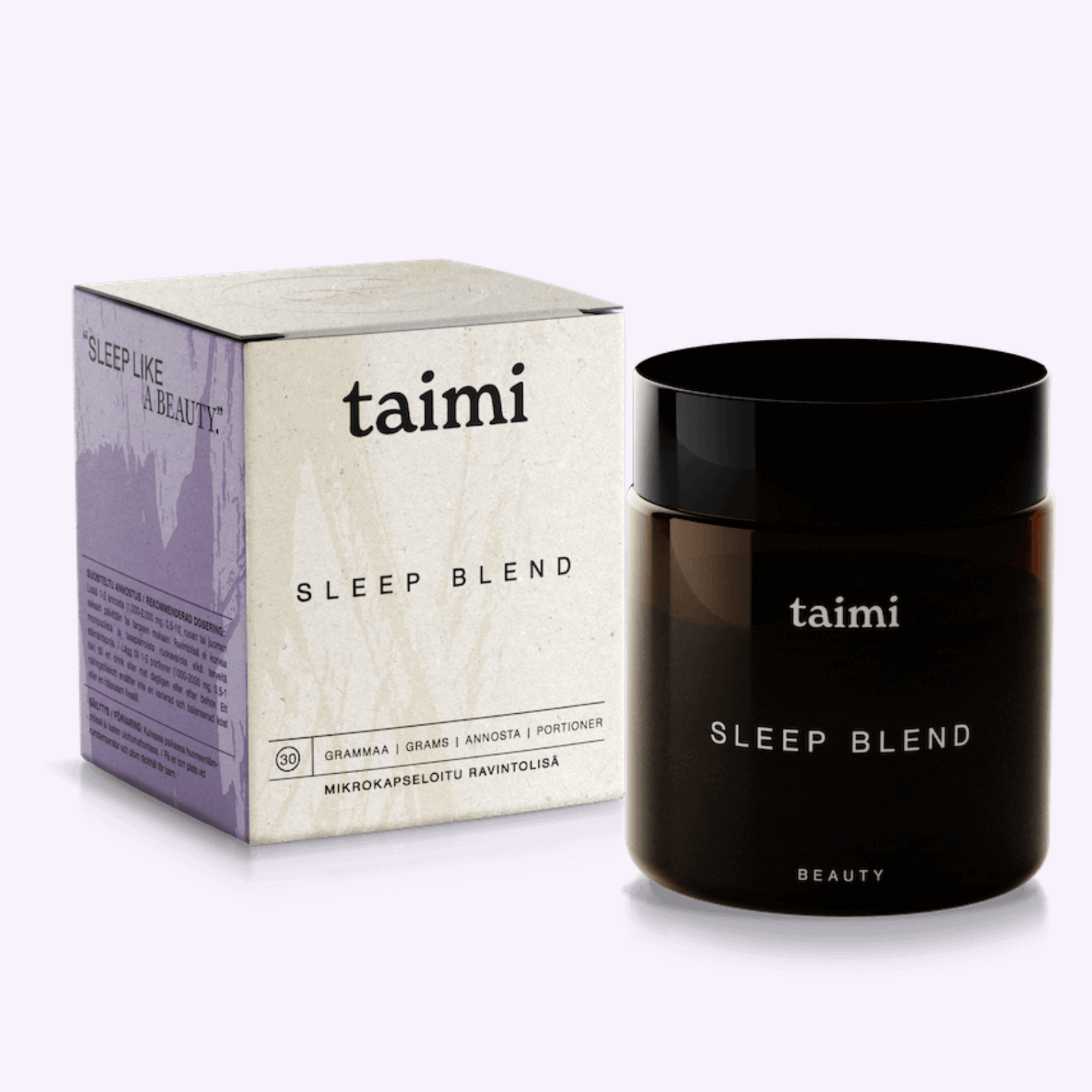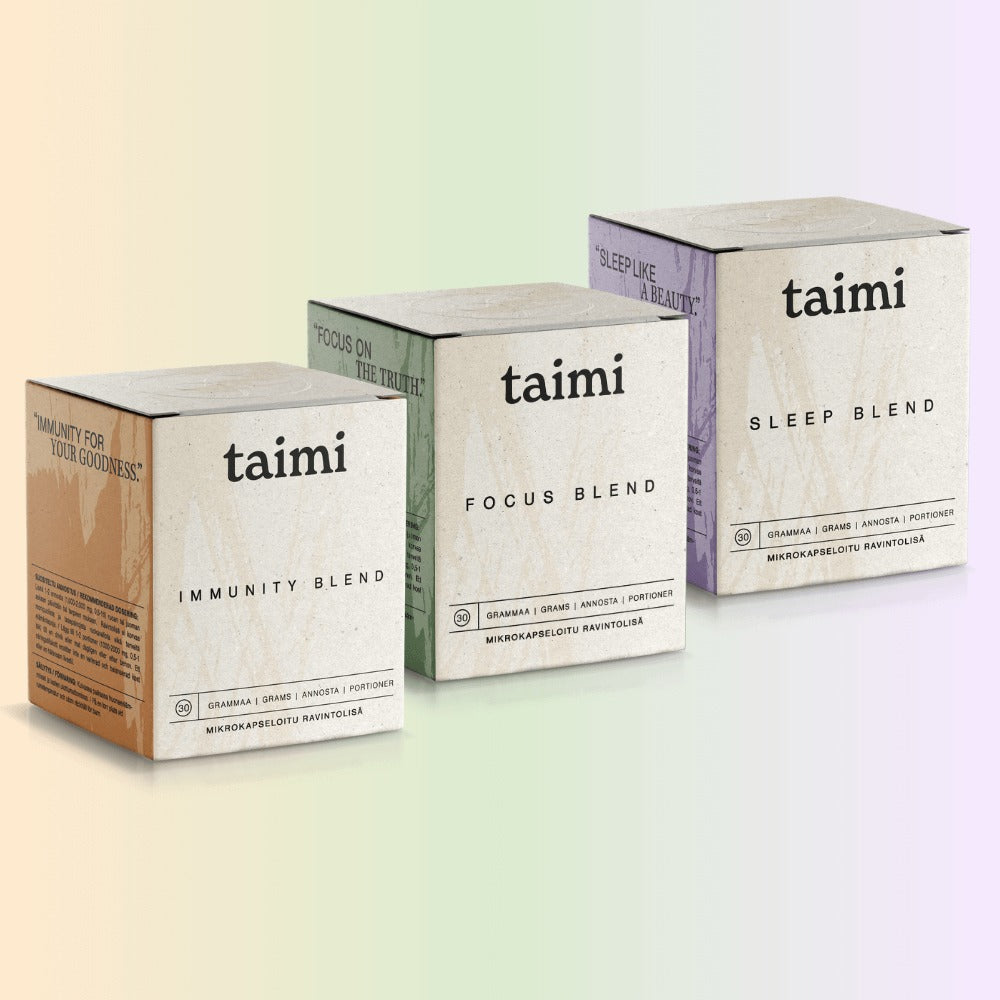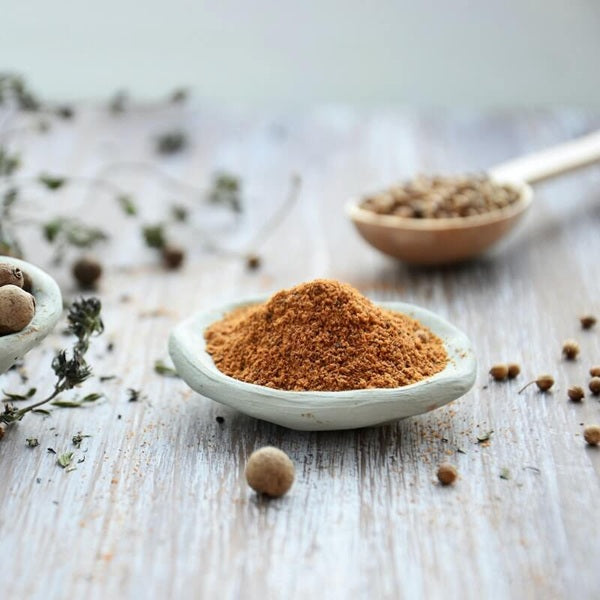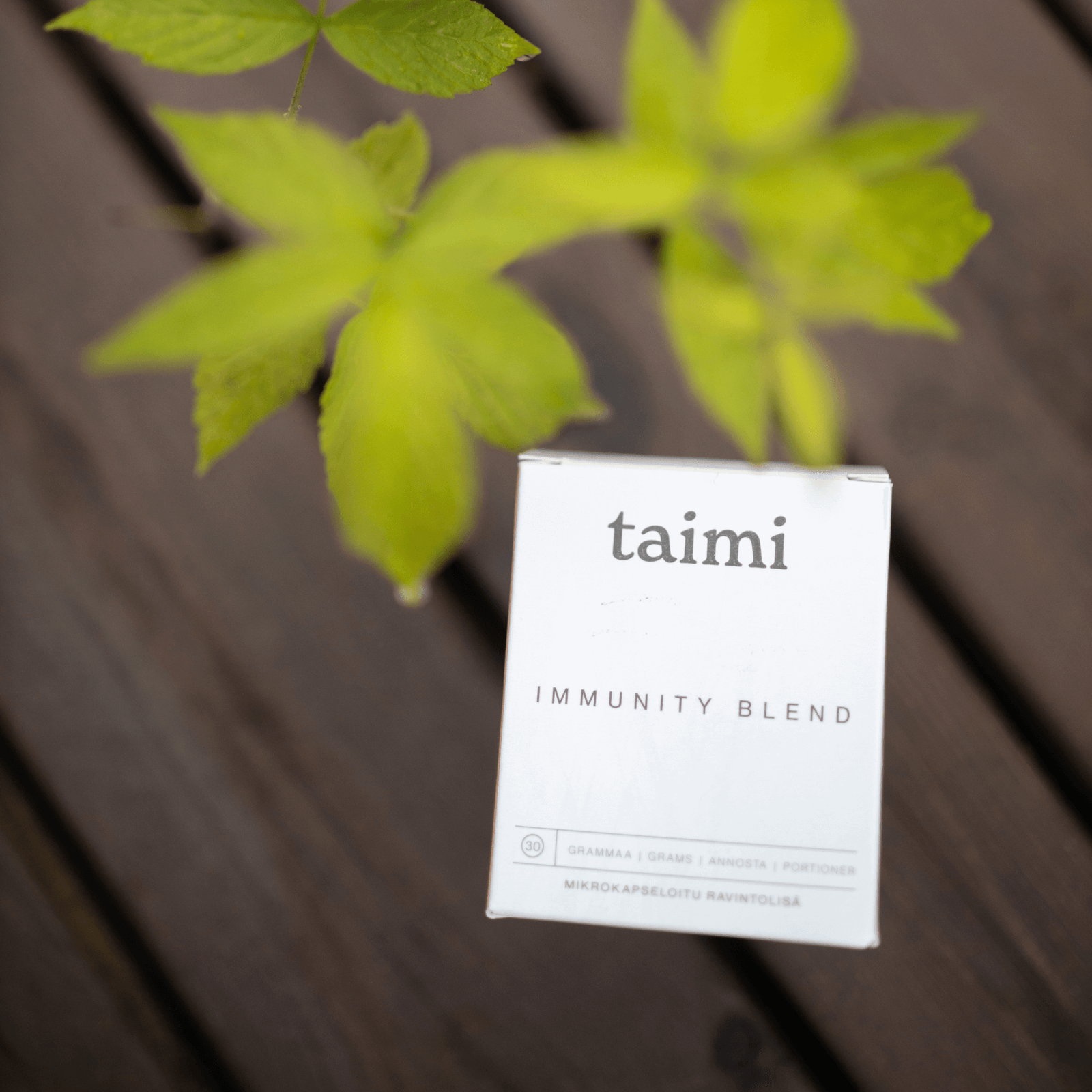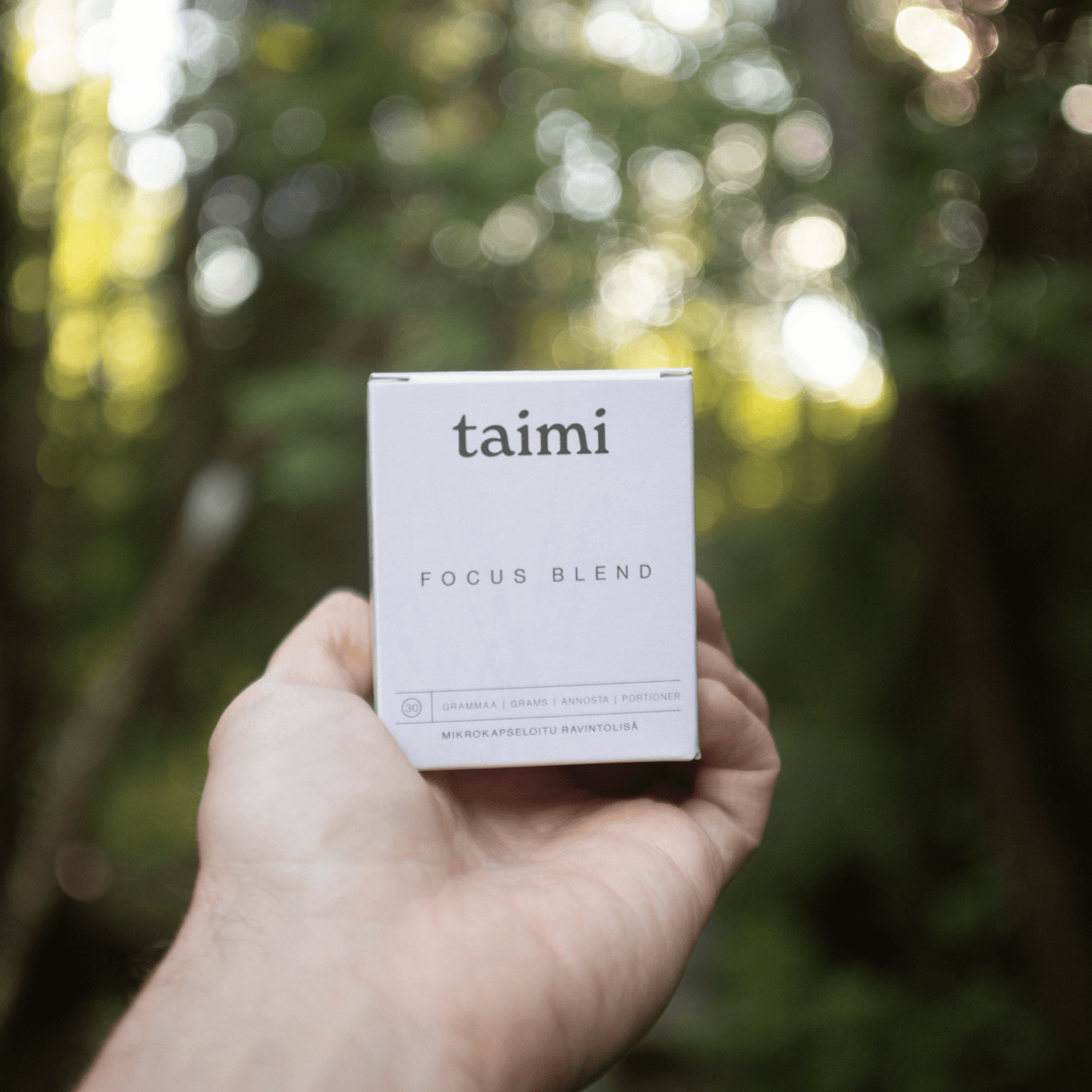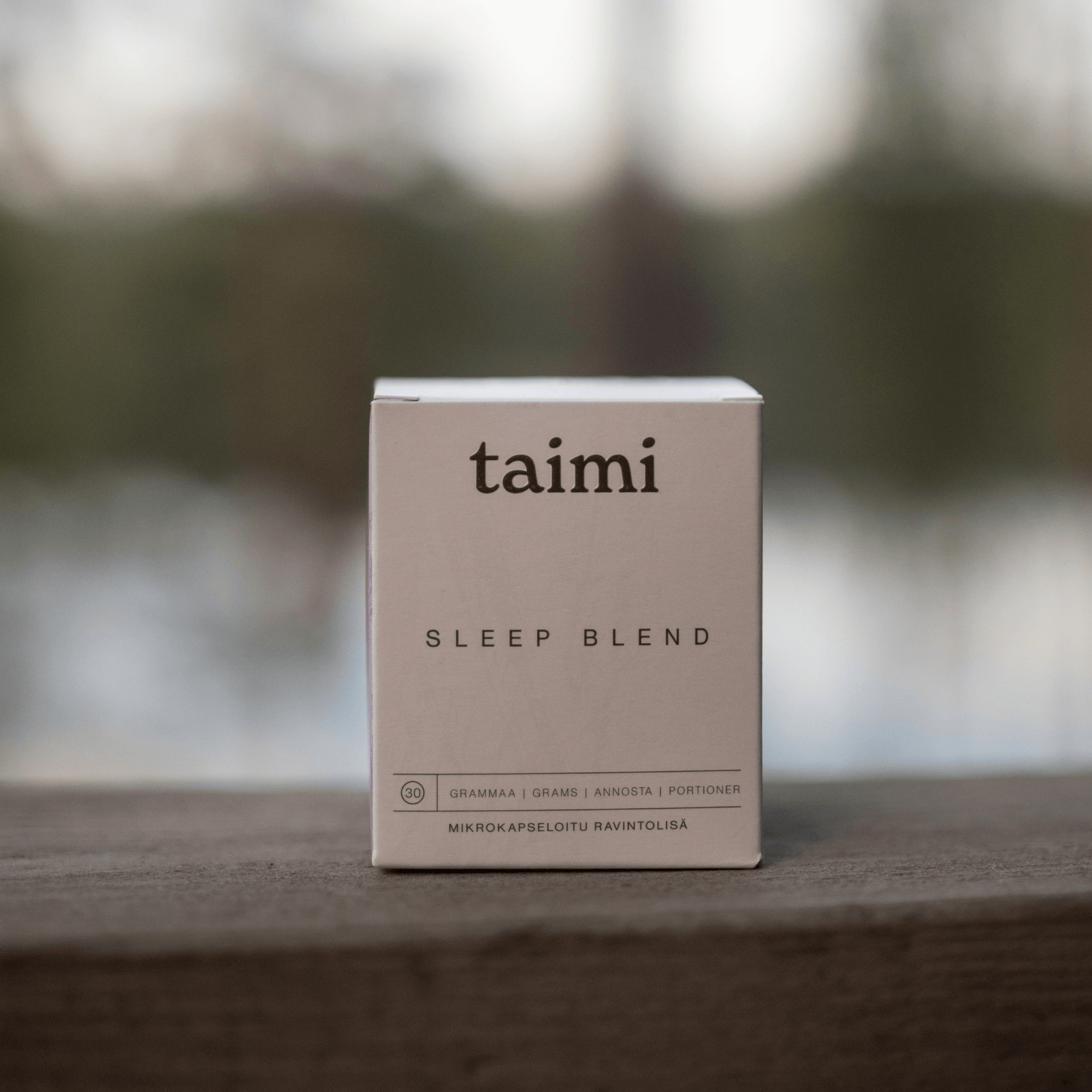Table of contents
Vitamin B1, or thiamine, is a coenzyme that the body uses to convert food into energy and to maintain the function of the heart and nervous system. Vitamin B1 helps us digest and take energy from the food we eat by converting nutrients into usable energy in the form of adenosine triphosphate (ATP). So a lack of vitamin B1 is something you definitely want to avoid.
Without high enough concentrations of thiamine, the body cannot properly use the molecules in carbohydrates and proteins to carry out important body functions.
Vitamin B1 deficiency (also called beriberi) can cause weakness, chronic fatigue, heart complications, psychosis, and nerve damage. The best way to prevent thiamine deficiency is to eat a variety of foods rich in B vitamins. Thiamine is found in many commonly eaten foods, such as whole grains, beans, nuts, nutritional yeast, internal organs such as liver, and meat in general. In addition, it is commonly available in various supplement products containing B vitamins.
What is Thiamine?
Thiamine (vitamin B1) is a water-soluble vitamin that is needed in almost all cells of the body. It is especially important in supporting energy levels and a healthy metabolism. Thiamine is technically a sulfur-containing derivative of thiazole and pyrimidine. It is incorporated with other B vitamins to form the "B vitamin complex" to regulate important functions of the cardiovascular system as well as hormone function and the digestive system.
The human body cannot produce thiamine, so we must consume it in our diet to prevent deficiency states. Its deficiency can cause a disease called beriberi, which has been present in undernourished populations for thousands of years. Beriberi can lead to muscle wasting and serious cardiovascular problems such as an enlarged heart.

Vitamin B1 deficiency is not common in developed countries. It is believed that most adults can meet their daily thiamine needs from food, and supplements are easy to fill any deficiencies.
Today, in developed countries such as Finland, thiamine deficiency occurs most commonly in alcoholics, which is known as Wernicke-Korsakoff syndrome. Chronic alcohol consumption can cause insufficient thiamine intake from food, reduced absorption of thiamine from the digestive tract, and reduced ability of cells to use thiamine. Often, alcoholics do not eat much food, but drink a lot of alcohol, which together is a major risk factor behind thiamine deficiency symptoms.
Vitamin B1 deficiency and symptoms
Clinical symptoms of vitamin B1 deficiency (symptoms of beriberi) can include:
- Rapid weight loss
- Loss of appetite
- Colitis, i.e. inflammation of the colon
- Persistent digestive problems such as diarrhea.
- Nerve damage
- Tingling in the legs (especially strong at night).
- Nerve inflammation, i.e. neuritis
- Fatigue and low energy levels
- Impairment of short-term memory
- Complexity
- Irritability
- Muscle weakness, cramps, leg pain and stiffness.
- Mental changes such as apathy or depression.
- Cardiovascular effects such as heart enlargement.
As vitamin B1, deficiency causes degeneration of peripheral nerves and parts of the brain, such as the thalamus and cerebellum. Deficiency can also reduce blood flow, cause vascular resistance, increase edema and cause heart enlargement.
The challenges of vitamin B1 intake
People who suffer from the following conditions/diseases have the greatest challenges in obtaining and absorbing thiamine :
- Liver problems
- Alcoholism
- Anorexia and other eating disorders leading to malnutrition
- Advanced age, which is often accompanied by impaired absorption of nutrients, chronic diseases, and the use of several medications
- Use of medications known to interfere with thiamine absorption.
- Gastrointestinal problems such as prolonged diarrhea and vomiting.
- HIV/AIDS
- Diabetes, which appears to increase the elimination of thiamine from the kidneys.
- Liposuction, which can lead to malnutrition and malabsorption.
- A poor diet that includes processed foods and lacks vegetables, nuts, beans and seeds.
- Fever, strenuous exercise and other similar "stress factors" for the body.
- High consumption of foods that can interfere with thiamine absorption (for example, raw seafood, tea and coffee).
- Pregnancy increases the need for all B vitamins (and most other nutrients).
Certain substances in coffee and tea, tannins and xanthines, can react with vitamin B1, turning it into a form that is difficult for the body to absorb. This can lead to digestive problems and general thiamine deficiency. However, this is rare in Western countries. Most researchers believe that the interaction between coffee, tea and thiamine is probably not a cause for concern unless the diet is very low in thiamine and also vitamin C , as vitamin C seems to prevent the interaction between thiamine and coffee and tea.
Research also shows that raw freshwater fish and shellfish may contain chemicals that destroy thiamine. Cooked fish and shellfish do not seem to cause the same problem.
The benefits of thiamine or vitamin B1
Listed below are the main benefits of vitamin B1/thiamine:
1. Maintains a healthy metabolism
Vitamin B1 is needed to make ATP, the body's most important energy-carrying molecule, in the mitochondria of cells. It helps convert carbohydrates into glucose, which is the body's primary source of energy. Thiamine also helps break down proteins and fats.
The coenzymatic form of thiamine is involved in two types of metabolic reactions in the body: decarboxylation and transketolase. When you eat food that contains vitamin B1, thiamine is carried around your body with your blood, where your cells use it to convert energy.
Thiamine also plays an important role in the production of red blood cells. Because thiamin and other B vitamins are naturally energy-boosting and are needed to produce ATP from food, you'll often find B-vitamin supplements labeled as "energy-boosting" or "metabolism-healthy" products. Vitamin B1 supplements may also be given to patients to correct metabolic disorders associated with genetic diseases.
2. Prevents nerve damage
If our diet does not contain enough "fuel" for the functioning of the nervous system, nerve damage occurs, which can cause difficulties in movement, learning and remembering information. Thiamine is needed to convert carbohydrates from our food into energy. The main function of carbohydrates is to produce energy for the body, especially for the brain and nervous system. Vitamin B1 is especially needed in the enzyme reaction system called pyruvate dehydrogenase.
Thiamine also helps in the proper development of the myelin sheath, which wraps around nerves and protects them from damage and destruction.
3. Supports a healthy cardiovascular system
Adequate intake of thiamine in the body is necessary for the production of a neurotransmitter called acetylcholine. This is used to transmit messages between nerves and muscles. Our heart is one of the most important muscles that is dependent on these important signals.
In order for the heart's function and heartbeat to remain normal, the nerves and muscles must be able to use the body's energy to transmit messages. Studies have shown that thiamine may be beneficial in the fight against heart disease because it helps maintain healthy ventricles and treat heart failure.
4. Enhances immunity
Vitamin B1 helps maintain the condition of the walls of the digestive tract, which is a very important part of our body's immune system. The digestive tract is healthy and in balance, your body is better able to extract nutrients from food, which are used to strengthen immunity and defend against various pathogens. Thiamine also helps with the secretion of hydrochloric acid, which is essential for digesting food and absorbing nutrients.

5. Helps in the treatment of alcoholism
Thiamine helps reduce the risk of developing a brain disorder called Wernicke-Korsakoff syndrome (WKS). Symptoms of WKS include involuntary convulsions, nerve damage, lack of concentration, memory disorders, lack of initiative, sleepiness and depression. Wernicke-Korsakoff syndrome is associated with low thiamine levels and often occurs in alcoholics. Alcohol negatively affects the body's ability to absorb thiamine from food. High doses of thiamine have been shown to help reduce alcohol withdrawal symptoms.
6. Improves learning
Vitamin B1 is an important vitamin for maintaining concentration, combating chronic stress , and possibly preventing memory loss. Studies have linked thiamine deficiency to problems with learning and retaining information. A study conducted in Great Britain showed that thiamine improved test participants' reaction times and feelings of mental clarity.
7. Helps maintain a positive mood
Thiamine improves the body's ability to withstand stress, which is why B vitamins are often called anti-stress vitamins. Lack of energy can lower mood and motivation. Since vitamin B1 plays an important role in energy production and affects the functioning of the brain in several different ways, its sufficient intake is a key factor in boosting mood and defending against depression and anxiety . Vitamin B1 can fight inflammation and help maintain healthy brain function, which is important for effective decision-making. A healthy and resilient nervous system is crucial for managing stress and anxiety and improving mood.
8. Helps prevent vision problems
According to research, thiamine can help protect against vision problems such as cataracts and glaucoma, as it affects the transmission of nerve and muscle signals, which is important in transmitting information from the eyes to the brain.
Sources of vitamin B1
The intake recommendation for thiamine in Finland is:
- Women (18 – 60 years): 1.1 mg/day
- Girls (1 – 17 years) : 1 mg/day
- Men (18 – 60 years) : 1.4 mg/day
- Boys (1 – 17 years) : 1.2 mg/day
Listed below are the best sources of thiamin/vitamin B1 per 100g serving size (percentages based on the recommended daily intake for an adult male):
- Nutritional yeast - 15 mg (1071%)
- Sunflower seeds - 2.3 mg (164%)
- Macadamia nuts - 1.2 mg (85%)
- Vein embryo - 1.4 mg (100%)
- Flaxseed - 1.64 mg (117%)
- Black bean (dried) - 0.9 mg (64%)
- Red lentil (dried) - 0.50 mg (36%)
- Green lentil (dried) - 0.41 mg (29%)
- Soybean (dried) - 1.1 mg (78%)
- White bean (dried - 0.78 mg (56%)
- Green peas (dried) - 0.62 mg (44%
- Green pea (fresh) - 0.25 mg (18%)
- Beef liver - 0.24 mg (17%)
- Chicken liver - 0.20 mg (14%)
- Broccoli (fresh) - 10 mg (7%)
- Brussels sprouts (fresh) - 11 mg (8%)
Supplements and dosage
What is the need for vitamin b1? To avoid deficiency, a person needs at least 0.33 milligrams of thiamine for every 1,000 calories consumed daily.
It is good to try to get the necessary vitamin b1 from whole food sources, not from supplements. According to research, thiamine deficiency does not seem to be common, so for the average person, supplementing with thiamine is usually not necessary.
Vitamin B1 is usually included in supplements that contain several B vitamins together. Most commonly, such supplements include vitamin B1 (thiamine), vitamin B2 (riboflavin) , vitamin B3 (niacin/niacinamide) , vitamin B5 (pantothenic acid) , vitamin B6 (pyridoxine) , vitamin B9 (folate) , B12 vitamin (cobalamin) .
New-age functional food supplements, such as Taimin's Focus Blend, often contain, in addition to normal B vitamins, for example amino acids, adaptogenic herbs, and minerals, the combined effect of which brings the desired "function."
--
Taimin's Focus Blend contains the following B vitamins;
- vitamin B1 (thiamine),
- vitamin B2 ( riboflavin) ,
- vitamin B3 (nicotinamide),
- vitamin B5 (calcium pantothenate),
- vitamin B6 (pyridoxal 5'-phosphate),
- vitamin B9 (methyltetrahydrofolate), as well as
- Vitamin B12 (adoncylcobalamin and methylcobalamin)
--
A typical dose for severe thiamine deficiency can be up to 300 milligrams per day, but this is only prescribed by doctors and used only in special cases. People suffering from thiamine deficiency are given high doses of thiamine to prevent complications. Neuropathy can be treated with 10-30 milligrams per day, cardiovascular complications can be treated with 100 milligrams as an infusion once a day for several days, and people with Wernicke-Korsakoff syndrome can be given 50-100 milligrams as an infusion.
How do I increase my intake of vitamin B1?
By eating foods that contain high amounts of vitamin B1. The best sources are beans, nuts, seeds, seaweed and yeast. In particular, the "nutritional yeast" commonly used by vegetarians, whose taste is similar to cheese, is a very good source of vitamin B1 and B vitamins in general. Many meats, especially liver, as well as certain whole grains, oats and barley, contain significant amounts of thiamine.
What is a good source of thiamine if you are a vegetarian or vegan? Most fruits and vegetables do not contain very high amounts of thiamine. Peas and tomatoes are an exception in this matter and they contain small to moderate amounts of thiamine. Asparagus, potatoes, mushrooms, romaine lettuce, spinach, Brussels sprouts, and eggplant contain small amounts of B vitamins, including thiamine, so when you eat large amounts of these and add nuts, beans, seaweed, and nutritional yeast, there is a high probability that you will get enough thiamine from food. Legumes, such as beans, should be soaked before use, however, as it increases their nutritional value and improves absorption.
Risks and side effects
Can vitamin B1 be overdosed? So is thiamine toxic in very large amounts?
To date, there have been very few confirmed cases of very serious side effects from overuse of thiamine. As a general rule, consuming too much thiamine at once is not a big concern, as it is a water-soluble vitamin. Excess thiamine, which the body does not need, is excreted in the urine within a few hours. Excess vitamin B1 as a supplement therefore does not cause damage in the body, but it is also not one of the most important nutrients that should be obtained as a supplement.
Summary
- Vitamin B1 is a water-soluble vitamin that is important in supporting energy levels, cognitive health, heart function and a healthy metabolism.
- What problems are caused by thiamine deficiency? Thiamine is present in all cells of the body, so thiamine deficiency affects all organ systems, especially cells of the nervous system and heart.
- Inadequate thiamine intake can lead to cardiovascular problems, cognitive problems, fatigue, nerve damage, muscle weakness and disrupt the body's defense against oxidative stress.
- People at increased risk for thiamine deficiency are usually alcoholics, anorexics, those with liver damage or liver disease, and those who eat too few calories or too many processed foods.
- How much vitamin B1 can you take per day? The intake recommendation for adult thiamine is 1.4 mg/day for men and 1.2 mg/day for women. Most people who consume enough calories get this amount from their diet without the need for supplements.
- Can thiamine be overdosed? Vitamin B1 is water-soluble, so excess thiamine is excreted from the body through urine. Extra vitamin B1 as a supplement does not cause damage in the body, but it is also not necessarily necessary.

